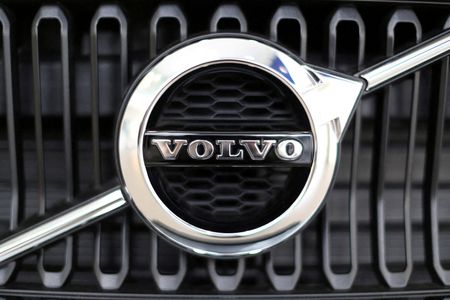 1
1 1
1

By Helena Soderpalm
STOCKHOLM (Reuters) – Volvo Cars on Friday posted fourth-quarter earnings below expectations pressured by global supply shortages despite strong demand for its vehicles.
Profits at the carmaker, which listed on Nasdaq Stockholm in October, were also dented by raw material costs and accounting changes at EV venture Polestar, in which it owns a 49% stake.
Its fourth-quarter operating profit fell to 3.7 billion Swedish crowns ($396.4 million) from 4.9 billion a year earlier and missed the 4.8 billion expected by analysts in a Refinitiv poll.
Revenue fell 6% to 80.1 billion crowns but topped the 75.2 billion expected by analysts.
Volvo said it expected to continued sales growth in 2022, though uncertainty due to the lingering effects of the pandemic remains high.
The Gothenburg-based company and global peers have been forced to cut vehicle output, despite robust demand in key markets such as China and the United States, due to a global chip shortage.
Volvo said the supply chain would remain a restraining factor, while the component shortage had eased somewhat and would improve gradually.
“It will definitely continue in the first half of the year. I think it’s too early to say we will see a normalisation in the second half too,” long-time CEO Hakan Samuelsson, who is due to step down in March, told Reuters.
Some automakers have said chip shortages could ease in the second half of 2022, while some automotive chipmakers have warned that a recovery could take longer.
Volvo aims for 50% of its sales to be pure electric cars by the middle of this decade, and reach 100% by 2030.
In January, the company’s Recharge models accounted for 31.7% of all Volvo cars sold globally, while fully electric cars made up 6.6%.
The company’s full-year operating margin rose to 7.2% from 3.2% in 2020 and 5.2% in 2019, before the pandemic struck.
Volvo, majority owned by China’s Geely Holding, proposed to pay no dividend.
($1 = 9.3353 Swedish crowns)
(Reporting by Helena Soderpalm; editing by Simon Johnson and Jason Neely)